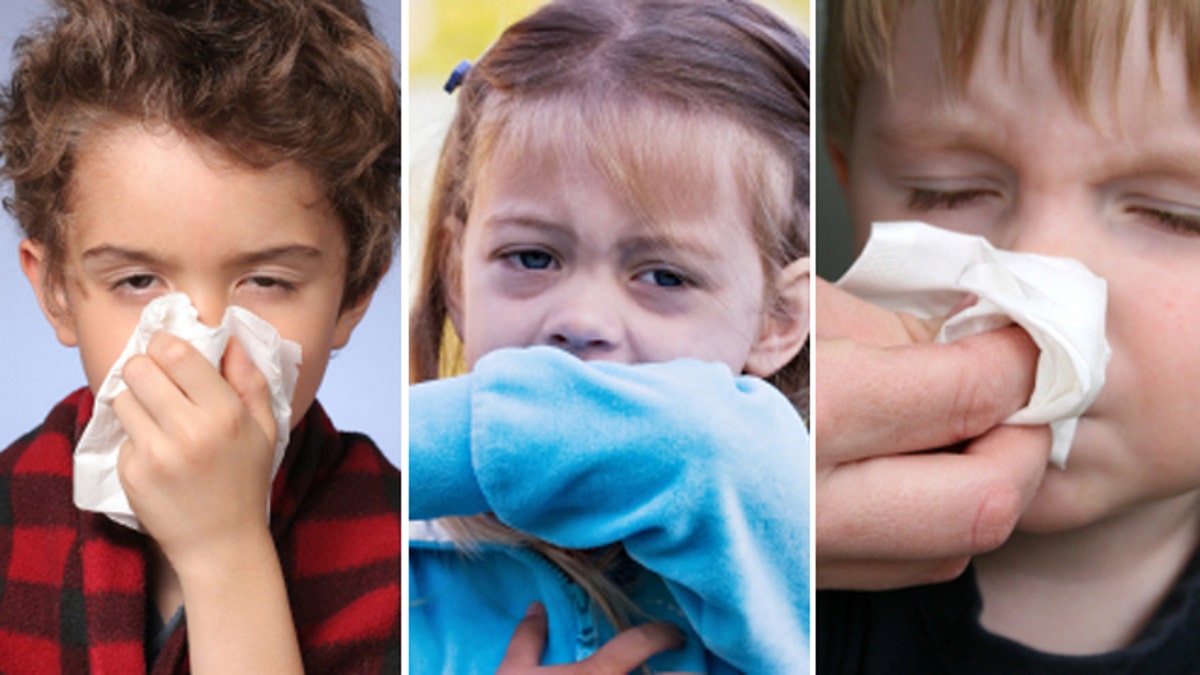
(iStock)
I must confess that when my pregnant wife was eating a bag of microwaved popcorn or applying a stain remover our couch several years ago, the last thing I was thinking about was whether a chemical additive in these common items would interfere later on with my kid’s immunity to vaccines.
Yet that very problem is what Dr. Philippe Grandjean and a group of Danish researchers found in a study of nearly 600 children from the Faroe Islands (located between Scotland and Island) published in the latest issue of the Journal of the American Medical Association.
Grandjean, who is an adjunct professor of environmental health at the Harvard School of Public Health, has been studying the effects of chemicals known as perfluorinated compounds (PFCs) in humans. He is concerned that these chemicals (which have been studied in high levels in mice where they have interfered with immunity) are altering our responses to infections and our ability to create an immunity when we take important vaccines.
PFCs are water, grease, and oil repellents. They are commonly used in nonstick cookware, stain-resistant fabrics, and as coatings on microwave popcorn bags and fast food wrappers. They are part of the foam that firefighters use. Since they are commonly found in the environment, they are absorbed by fish, and since people living on the Faroe Islands eat a diet high in fish, they are more likely to have higher levels of PFCs.
Grandjean and his group compared one group of pregnant women with higher levels of PFCs to another group with lower levels, and found that the group with higher levels produced children who – 5 to 7 years later – had lower levels of antibodies to tetanus and diptheria vaccines given in early childhood, than the control group did.
In other words, exposure to PFCs leads to decreased immunity to common diseases provided by common vaccines.
“The exposures that we studied in the Faroese kids are similar to those occurring in the U.S.,” Grandjean wrote an email. "Also the pattern of different PFCs is similar. My guess is that the Faroese get more PFC from marine food chains (they eat more fish than Americans). Other sources of importance are food packaging materials and textile treatment. Drinking water may also be contaminated with PFCs (in certain parts of the US near PFC production facilities). We looked only at antibodies against two toxoids (protein vaccines), but given the support from mouse experiments, I would think that responses to other vaccines may well be diminished, possibly also the protection against infectious disease in a more general sense, although we don't have such data yet.”
The key word here is preliminary. Grandjean and his group are adding to a growing body of evidence that PFCs are not good for our immune system, but it is too soon to say how much of an exposure is harmful and how much is tolerable.
In the meantime, someone who tells people to stop eating microwave popcorn or to no longer remove stains from carpets or to allow their omelets to stick to the pan is either being alarmist or prudent depending on your point of view.
Dr. Marc Siegel is an associate professor of medicine and medical director of "Doctor Radio" at NYU Langone Medical Center. He is a member of the Fox News Medical A Team and author of "The Inner Pulse; Unlocking the Secret Code of Sickness and Health."
